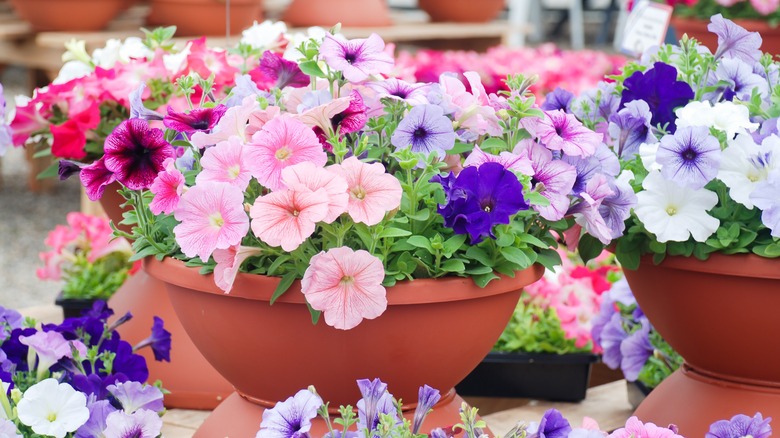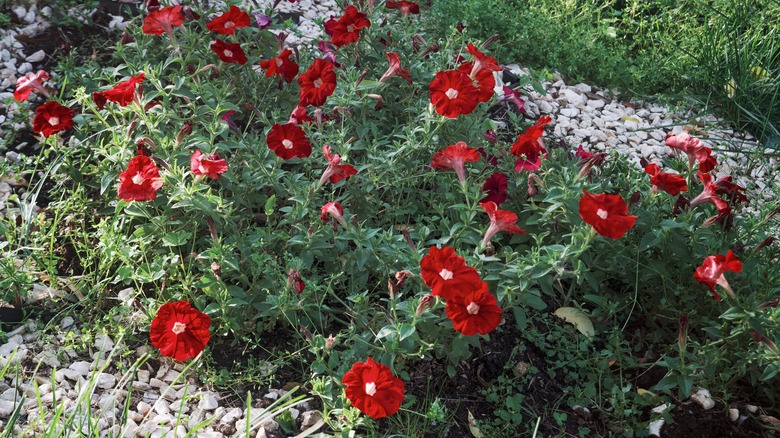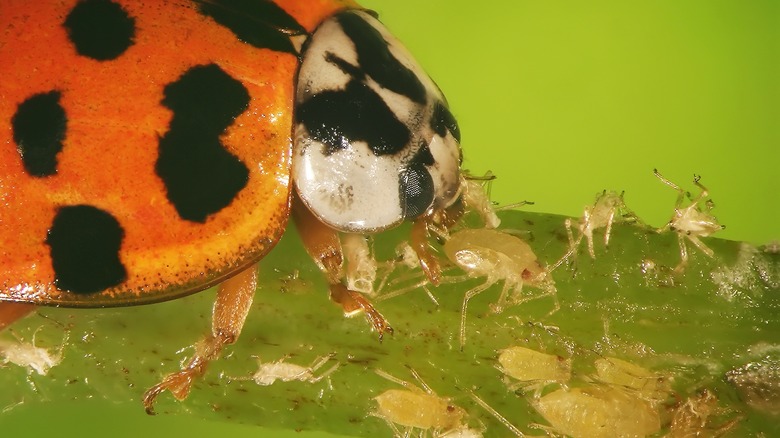Will Petunias Really Help Eliminate Unwanted Pests In The Garden?
Petunias are a staple in most ornamental gardens, and it's no wonder since they're as gorgeous as they are hardy. They thrive in full sun but can also do well with some shade. They need very little water and can make do with just about any soil you give them. While some plants have specific water and shade demands, petunias are happy to make the most of what's available to them. You may have heard that these easygoing plants can eliminate pests in the garden, but is this true? "Eliminate" is a strong word, but many sources do point to petunias having some repelling power that makes them worth trying out for pest control purposes.
Petunias may not deplete pest populations on their own, but they're more effective when paired with other plants. Many insects are attracted to petunias, including the predators that eat the bugs you don't want. Use petunias in tandem with other plants to maximize their pest-deterring potential.
Petunias can repel pests but not eliminate them
Many insects are repelled by petunias, including mosquitoes, aphids, asparagus beetles, and Mexican bean beetles. Some plants just don't smell good to insects, so they stay away. However, a plant sitting in soil isn't always that effective at warding off bugs. Crushing plants and rubbing them on surfaces like clothing or even your skin is far more effective since breaking the leaves releases the scent. The potent scent is what keeps insects away, so the stronger the smell you can get, the better.
Just because crushed leaves are more effective doesn't mean you shouldn't plant petunias at all. Plant beds full of petunias for the strongest effect, as just a few plants here and there likely won't cut it. If you plant many petunias in your garden, you're more likely to damage leaves by stepping on them, placing gardening tools on them, or having animals walk on them, which can release their scent and keep bugs away. According to a study in the Malaria Journal, many plants have a natural repellent against plant-eating insects, like nitrogen compounds and others, that are released when leaves are damaged. While you may not want to intentionally harm your petunias, planting many of them around your garden will give them plenty of chances to release chemicals that keep pests away.
Petunias attract predators
Perhaps the best way petunias can keep pests at bay is by attracting the predators that eat them. This is a gardening method often used in companion planting, where you plant something that attracts predators that will eat the pests nearby. If you see ladybugs and lacewings buzzing around your petunias, you can celebrate the fact that you have aphid eaters on the premises!
Sometimes, petunias can attract predators in a seemingly counterproductive way: attracting pests. Aphids love petunias, which is another reason aphid eaters will stop by. If aphids often target other plants you love more than petunias, use the petunias as a trap crop. Let the aphids and other critters eat them up, and soon, you'll have predators in the area going crazy over the buffet they just found. Since petunias are so easy to care for, they make great trap-cropping plants because you don't need to give them special attention.


